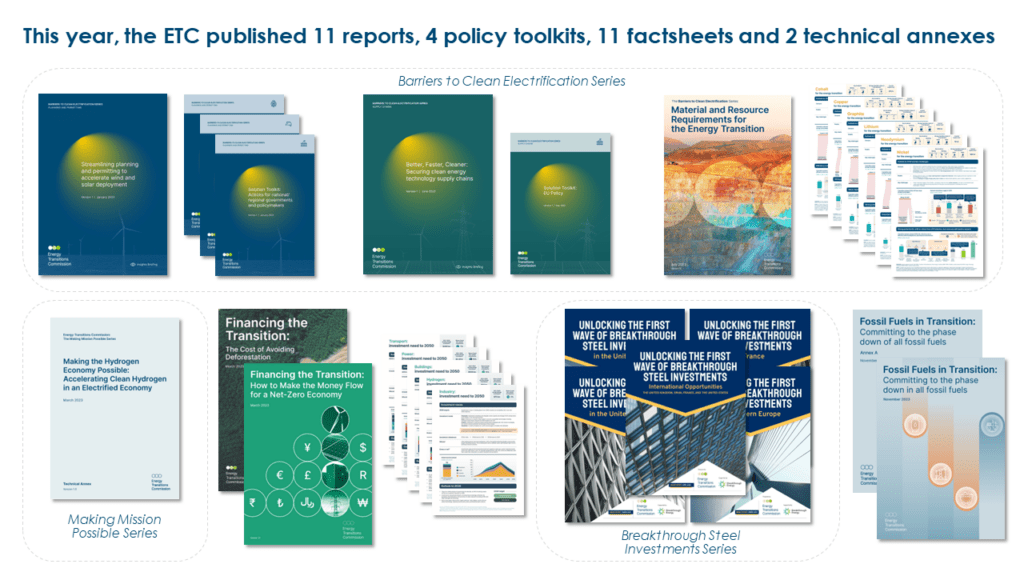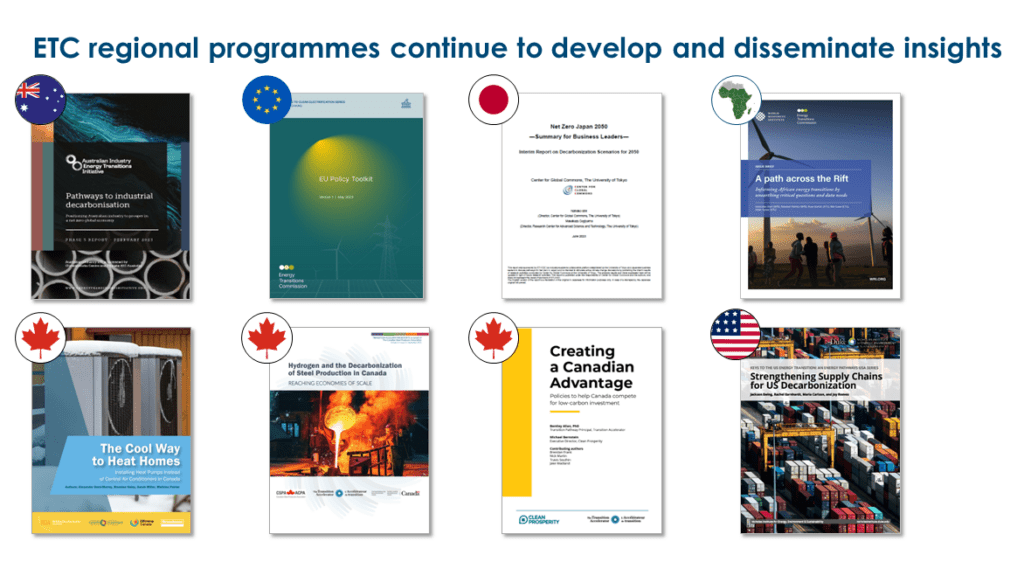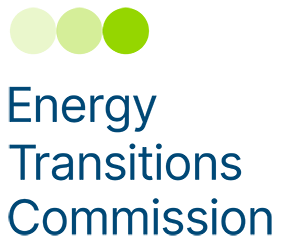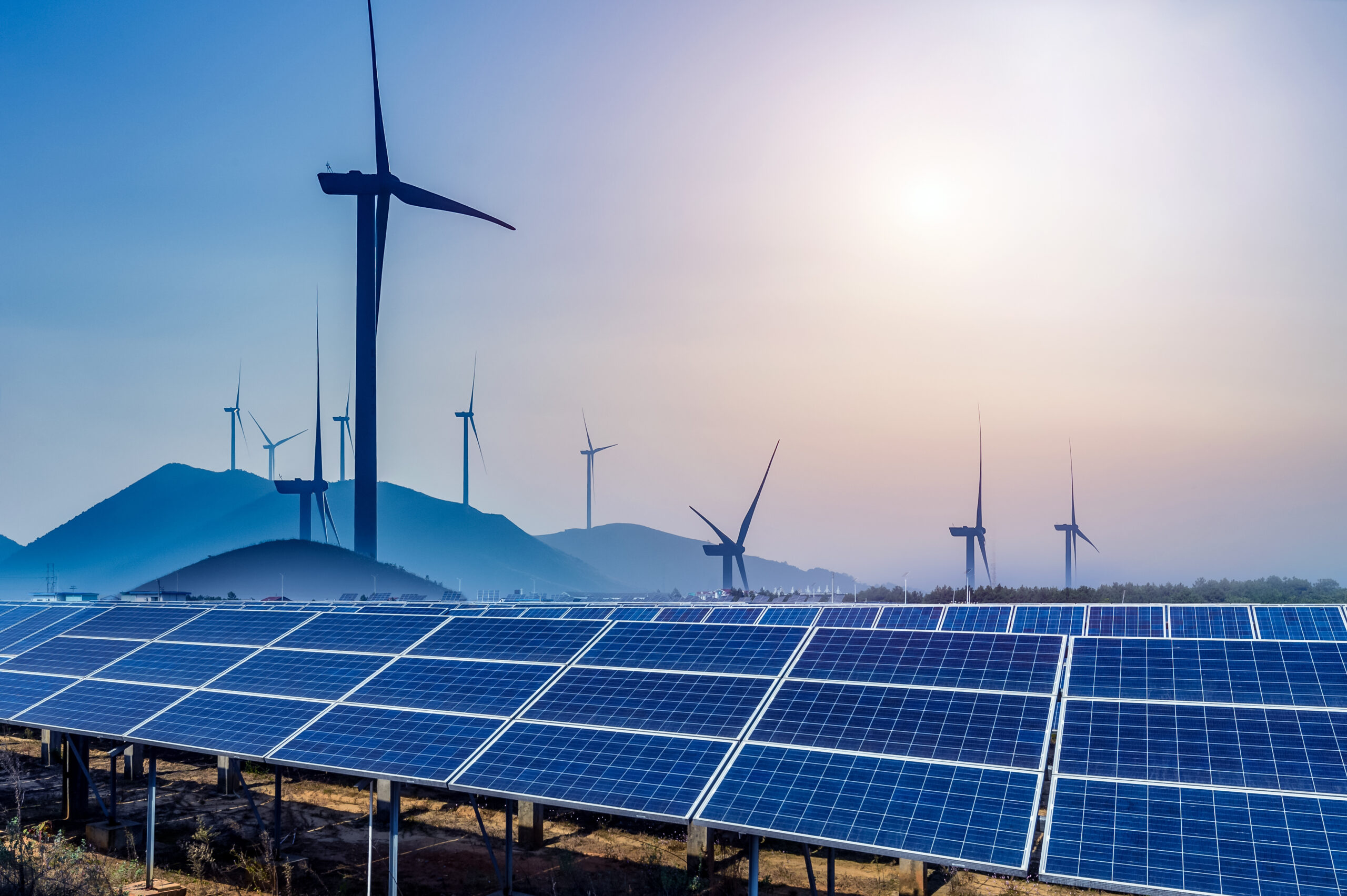
All of our work can be downloaded from our Publications page.
- Streamlining Planning and Permitting to Accelerate Wind and Solar Deployment: Addresses why overcoming planning and permitting barriers is critical to ensuring the deployment of renewables at the speed and scale required to ensure rapid cuts to emissions.
- Unlocking the First Wave of Breakthrough Steel Investments: Breakthrough primary steelmaking technology, centred on direct reduced iron (DRI) production with clean hydrogen, is under development at a commercial scale by a handful of projects around the world, but most have yet to reach final investment decision (FID) status. This series explores how a viable investment case for breakthrough steel projects is within reach in the UK, Southern Europe, France and the United States, and how it can be applied internationally.
- Making the Hydrogen Economy Possible – Technical Annex: This technical annex supports the 2021 ETC report Making Clean Hydrogen Possible. It describes aspects of hydrogen supply, transportation and storage, demand, and hydrogen as a greenhouse gas in more detail. It also outlines variables and assumptions in the ETC’s illustrative scenarios.
- Financing the Transition: highlights the critical importance of strong government policies relating both to the real economy and to the financial system if finance is to flow on the scale required for the transition to net zero by mid-century.
- The Costs of Avoiding Deforestation: Is a supplementary report presenting an analysis of how much it could cost to overcome the economic incentive to cut down trees.
- Securing Clean Energy Technology Supply Chains: Explores why three key areas: scaling manufacturing and supply of raw materials and components, environmental and social concerns around mining and manufacturing, and geographic concentrations of clean energy supply chains, must be addressed to avoid delays and increased costs for the energy transition.
- Material and Resource Requirements for the Energy Transition: dives into the scale of natural resources and materials required to meet the needs of the energy transition, and how large investments and policy support can help to sustainably deliver these over the next decades.
- Fossil Fuels in Transition: Issues a compelling call to dramatically reduce oil, gas and coal use through to mid-century, starting now. Crucially, the report dispels the notion that CCUS and carbon removals justify business as usual for fossil fuel production.
- In addition, the regional programmes have developed and disseminated insights, including:
- Phase 3 report of Pathways to industrial decarbonisation by the Australian Industry Transitions Initiative.
- Better, Faster, Cleaner: Securing clean technology supply chains which included an EU policy toolkit, by the ETC.
- Net Zero Japan 2050 – Summary for Business Leaders by Center for Global Comms and the University of Tokyo.
- A path across the Rift a collaboration between WRI Africa and ETC.
- Strengthening Supply Chains for US Decarbonization by the Nicholas Institute and Duke University.
- Multiple reports from Electrifying Canada hosted by the Transition Accelerator, including The Cool Way to Heat Homes, Hydrogen and the Decabonization of Steel Production in Canada, and Creating a Canadian Advantage.



